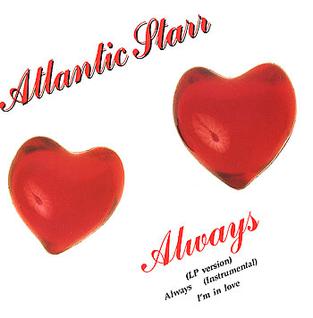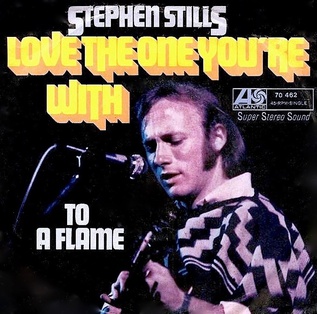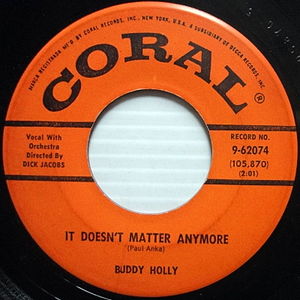
"MacArthur Park" is a song written by American singer-songwriter Jimmy Webb that was recorded first by Irish actor and singer Richard Harris in 1968. Harris's version peaked at number two on the Billboard Hot 100 chart and number four on the UK Singles Chart. "MacArthur Park" was subsequently covered by numerous artists, including a 1970 Grammy-winning version by country music singer Waylon Jennings and a number one Billboard Hot 100 disco arrangement by Donna Summer in 1978. Webb won the 1969 Grammy Award for Best Arrangement Accompanying Vocalist(s) for the Richard Harris version.

"You're All I Need to Get By" is a song recorded by the American R&B/soul duo Marvin Gaye and Tammi Terrell and released on Motown Records' Tamla label in 1968. It was the basis for the 1995 single "I'll Be There for You/You're All I Need to Get By" from Method Man and Mary J. Blige.

"Ain't Nothing Like the Real Thing" is a 1968 single released by American R&B/soul duo Marvin Gaye and Tammi Terrell, on the Tamla label in 1968. The B-side of the single is "Little Ole Boy, Little Ole Girl" from the duo's United LP. The first release off the duo's second album: You're All I Need, the song—written and produced by regular Gaye/Terrell collaborators Ashford & Simpson—became a hit within weeks of release eventually peaking at number eight on the US Billboard Hot 100 and number one on the Hot Soul Singles chart, the first of the duo's two number-one R&B hits. In the UK "Ain't Nothing Like the Real Thing" reached number 34.

"The Way You Do the Things You Do" is a 1964 hit single by the Temptations for the Gordy (Motown) label. Written by Miracles members Smokey Robinson and Bobby Rogers, the single was the Temptations' first charting single on the Billboard Hot 100, peaking in the Top 20 at number eleven; it also went to number one on the Cash Box R&B chart. The song has been an American Top 40 hit in four successive decades, from the 1960s to the 1990s. A version by Hall & Oates featuring Temptation members Eddie Kendricks and David Ruffin was nominated for a Grammy Award in 1986. A cover version by British reggae band UB40 hit number six in the U.S. in 1990.

"Last Dance" is a song by American singer Donna Summer from the soundtrack album to the 1978 film Thank God It's Friday. It was written by Paul Jabara, co-produced by Summer's regular collaborator Giorgio Moroder and Pete Bellotte, and mixed by Grammy Award-winning producer Stephen Short, whose backing vocals are featured in the song.

"Always" is a song by American R&B group Atlantic Starr. The track was the second single from the group's seventh studio album All in the Name of Love (1987). The single was the biggest hit for Atlantic Starr; it peaked at number one on both the US Billboard Hot 100 and Billboard Hot Black Singles charts in June 1987, being the band's only number one song. The song also spent two weeks atop the U.S. adult contemporary chart. In July, it topped the Canadian RPM 100 national singles chart, where it remained for two weeks. The British Phonographic Industry (BPI) certified it silver.

"Oh Girl" is a song written by Eugene Record and recorded by American soul vocal group the Chi-Lites, with Record on vocals and also producing. It was released as a single on Brunswick Records in 1972. Included on the group's 1972 album A Lonely Man, "Oh Girl" centers on a relationship on the verge of break-up.

"Love the One You're With" is a song by American folk rock musician Stephen Stills. It was released as the lead single from his debut self-titled studio album in November 1970. The song, inspired by a remark Stills heard from musician Billy Preston, became his biggest hit single, peaking at No. 14 on the Billboard Hot 100 in early 1971. David Crosby and Graham Nash, Stills' fellow members of Crosby, Stills & Nash, provide background vocals on the song. Also providing the backups are Rita Coolidge, her sister Priscilla Jones, and John Sebastian. They all sing the "Do Dos" that come before the instrumental portion and the Outro. The song was also recorded by the Isley Brothers, The Meters, Bucks Fizz, Luther Vandross, Bob Seger and Richard Clapton, among others.

"If You Could Read My Mind" is a song by Canadian singer-songwriter Gordon Lightfoot. Lightfoot wrote the lyrics while he was reflecting on his own divorce. It reached No. 1 on the Canadian Singles Chart on commercial release in 1970 and charted in several other countries on international release in 1971.

"More Love" is a 1967 hit single recorded by the American soul group The Miracles for Motown Records' Tamla label. The single, included on the group's 1967 album Make It Happen, later reissued in 1970 as The Tears of a Clown. Kim Carnes's 1980 cover of the song reached the Top 10 of Billboard's Adult Contemporary and Hot 100 charts.

"Love Ballad" is a song by R&B/Funk band L.T.D. Jeffrey Osborne is the lead singer.

"(There's) No Gettin' Over Me" is a song written by Walt Aldridge and Tom Brasfield, and recorded by American country music singer Ronnie Milsap. It was released in June 1981 as the first single from the album There's No Gettin' Over Me. Known by many fans by its less grammatically correct title "There Ain't No Gettin' Over Me" — the song's official title appears nowhere in the lyrics — the song became one of Milsap's biggest country hits and his only top 10 pop hit during his recording career.

"I Believe You" is a love ballad composed by Don and Dick Addrisi which was a 1977 single for Dorothy Moore; taken from her self-titled Dorothy Moore album. "I Believe You" reached #5 R&B and crossed over to the US Pop Top 30 at number 27. The track also reached number 20 in the UK.

"(You're) Having My Baby" is a song written and recorded in 1974 by Canadian singer Paul Anka. Recorded as a duet with female vocalist Odia Coates, the song became Anka's first No. 1 hit on the Billboard Hot 100 in 15 years, since 1959's "Lonely Boy". The song was certified Gold by the RIAA.

"Cupid" is a song by American singer Sam Cooke, released on May 16, 1961. It charted at number 17 on the Billboard Hot 100 and number 20 on the Hot R&B Sides chart; the track performed best in the United Kingdom, peaking at number seven on the UK Singles Chart. The song is featured on Cooke's greatest hits album, The Best of Sam Cooke (1962). Cooke's producers had asked him to write a song for a girl they had seen on a Perry Como TV show—but once they heard her sing, they kept "Cupid" for Cooke himself.

"She's a Lady" is a song written by Paul Anka and released on his album Paul Anka '70s. The most successful recording was performed by Tom Jones and released at the beginning of 1971. It is Jones's highest-charting single in the U.S..

"Love on a Two-Way Street" is a soul ballad written by Sylvia Robinson and Bert Keyes in 1968. The song was originally recorded by Lezli Valentine, an artist signed to All Platinum, the record label that Sylvia Robinson co-owned with her husband, Joe. The song was then recorded by The Moments, an R&B vocal group signed to All Platinum subsidiary Stang Records, as filler for their 1968 album Not on the Outside, But on the Inside, Strong!. Sylvia and Joe decided to release the song as a single in March 1970 and it went on to become one of the biggest R&B hits of that year, spending five weeks at number one on Billboard's Soul Singles chart and reaching number three on the Hot 100 chart. Billboard ranked the record as the No. 25 song of 1970. It was also certified gold by the RIAA for sales of one million copies.

"It Doesn't Matter Anymore" is a pop ballad written by Paul Anka and recorded by Buddy Holly in 1958. The song was issued in January 1959, less than a month before Holly's death. "It Doesn't Matter Anymore" reached number 13 as a posthumous hit on the Billboard Hot 100 chart in early 1959, shortly after Holly was killed in a plane crash on February 3, 1959. The single was a two-sided hit, backed with "Raining in My Heart". "It Doesn't Matter Anymore" was Holly's last US Top 20 hit and featured the orchestral backing of Dick Jacobs. It was also successful in the United Kingdom, where it became the country's first posthumous number 1 hit.

My Second Album is the second studio album released by American country artist Donna Fargo. The album was released in February 1973 on Dot Records and was produced by Fargo's husband and manager Stan Silver. The album spawned two number one singles on the Billboard country chart and was one of two albums Donna Fargo would release in 1973.

"Never Ending Song of Love" is a song written by Delaney Bramlett, and, according to some sources, by his wife Bonnie Bramlett. It was originally recorded with their band, Delaney & Bonnie & Friends, in 1971 on the album Motel Shot. Released as a single by Atco Records the same year, "Never Ending Song of Love" became Delaney & Bonnie's greatest hit on the pop charts, reaching a peak of No. 13 on the Billboard Hot 100 and No. 8 on Easy Listening. It reached No. 16 in Australia.





















